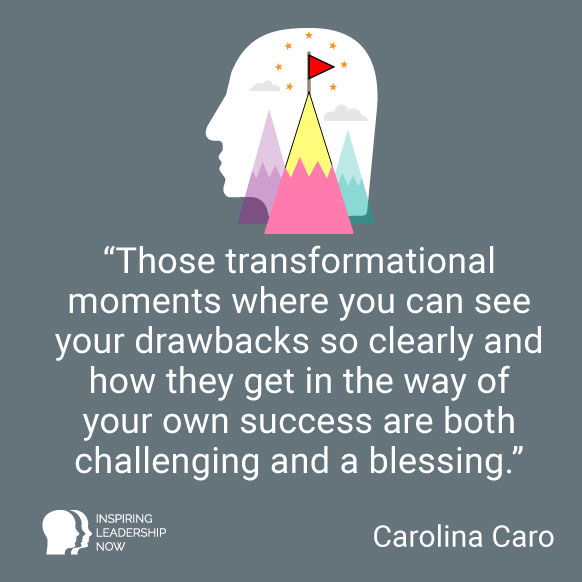Last updated: 29 August 2019

Want to discover more ways to charge up your leadership skills in just a few minutes a day? Get your FREE Inspiring Leadership Cards Quote Deck for 49 powerful leadership quotes from history’s greatest leaders and practical action steps you can apply to your career right now. But hurry! Supplies are LIMITED so don’t miss out – grab yours now! (Just cover S+H)
Imagine an inbox full of tasks calling for your attention.
What do you do?
Do you leave it for a few hours, a few days? Ignore them in the hope or expectation that someone else might get to them first?
Or do you get straight on them, so they are read, processed or completed straight away without giving it a thought?
Do you accept any offers to help in the process?
When you get to them do you notice your approach?
Perhaps you procrastinate your way through them, allowing yourself to get distracted for a while, check Insta, have a look at Facebook, send out a couple of Tweets. Make a coffee, have a chat. All of the above?
Or maybe you’re the kind of person who rushes through them? Giving more attention to the next task on your agenda, or mentally whizzing through your list of other to-do’s.
Or perhaps you doubt your way forward, spending an inordinate amount of time going through the potential permutations of the decisions you are making, maybe not backing your own ideas or intuition and deferring to others when it comes to making decisions?
You might have heard the phrase how you do anything is how you do everything.
Indeed your approach to one thing, even a seemingly mundane task such as working your way through your emails after a vacation, is reflected in and forms your approach to life.
How you do things on a small scale is reflected in how you do things on a vast scale: the microcosm is reflected in the macrocosm.
Your approach to any small task is directly related to how you meet the bigger tasks and challenges that you face in your career, your relationships – in fact in everything.
It is fundamentally easy to overlook your modus operandi (ways of doing) relating to the small things because when learning new tasks very quickly the brain becomes hardwired to recall the process.
Neural pathways form, because the more you fire (nerve impulses through the brain repetitively) the more you wire (forming those neural pathways).

This is a fantastic example of evolution, a feat of neuroplasticity, because it means that very quickly you’re able to automatically go through the motion of whatever it is you have learned.
Furthermore, it leaves the mind free to notice other concerns, giving you peripheral vision to engage with your tribe or keep an eye out for or potential threats.
In a non-threatening environment, rather than watching for danger, the mind comes to unconsciously skip over what you are doing and from topic to topic. You have probably noticed it indulging in distractions such as social media, vacation plans, general fantasies, or skipping to the next thing on your mental lists (ad infinitum!).
However, if you start to pay attention to how you approach your mundane tasks, and your repetitive patterns inherently within them, they can be a source of transformation.
Whether you are clearing your inbox, preparing a group presentation, or even washing the dishes, you will be following a pattern of habits; your habitual approach.
Some common approaches are:
- Procrastination – putting it off, finding constant distractions
- Rushing – quick as you can, and on to the next thing!
- Doubt – not backing yourself, deferring to others, or constantly seeking approval
- Perfection – giving more attention than necessary to the minute details in each and every tiny task
- Assistance – accepting or asking for support when required
In her article How You Do Anything is How You Do Everything, Carolina Caro uses the example of her inability to accept help from others and writes that:

Noticing your style in the seemingly mundane tasks allows you to see how your habits on a small scale translate into habits on a far greater scale and adds that:
So, how to switch the potential sabotage for potential success?
Start with the small things, of course!
- If you’re prone to procrastinating try setting small, achievable time boundaries (and sticking to them!). This might be starting with working uninterruptedly for 30 minutes at a time. To hold this structure you might consider either setting an alarm, or using Apps to block your access to social media platforms or the web between specific times of the day.
Once you have nailed the 30 minutes you could incrementally increase the amount of time you are working for, adding 10 minutes and building up to a productive and comfortable working window.
- Or if you’re more of a “rusher”, you might endeavor to focus solely on one task at a time. Perhaps close any other programmes or irrelevant Apps on your device and only open those that are absolutely required for this task. When you notice your temptation to have another scan through your emails to look for the next thing, keep the App closed and come back to your task at hand. Pay close attention and notice the nuances of what you are working with.
- Or if you have a habit of doubting yourself, start by taking small risks, maybe speaking up in the meeting – putting forward an idea.
When you notice your temptation to defer to others, or seek approval, take a breath and take a risk – back yourself and put it out there. Give yourself the break you deserve, you probably know more than you realize. Cultivate trust in yourself by backing yourself and bit-by-bit and watch your confidence grow.
- If perfectionism is more your thing, why not have a go at designating yourself a reasonable time frame in which to complete each task. Again, you could set an alarm or a timer to hold the structure while you work. At the end of this time frame the task is done! It is tempting to “gild the lily”, in other words to add enhancements where none are necessary. Practice stopping before you might normally want. Ask yourself at this point even if it doesn’t feel “perfect,” have you fulfilled the brief? If yes, good, then leave it alone and onto the next thing. You can always revisit if changes or additions are necessary.
- And if you’re prone to resisting assistance or support notice when the temptation to “go it alone” overtakes you and you want to say “no”, try saying “yes” to the person who has offered to support with setting your group presentation for example. Start saying yes. Maybe even take it to the next level and actively engage the expertise or input of others on something you’re working on. Create time to collectively brainstorm solutions or invite a bounce-around of ideas over coffee. Say yes to collaboration.

In each case, start with setting yourself small, achievable goals: make a promise to yourself to keep them. Watch as those small changes you’re sticking to start to percolate into how you do others things in your life. Noticing and changing how you do one little thing will then apply to every big thing.
Carolina Caro sums it up like this:
Time to get to that inbox.

